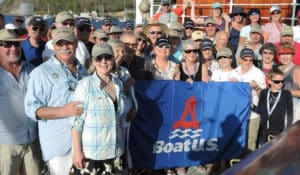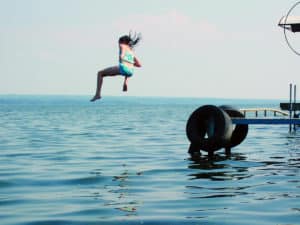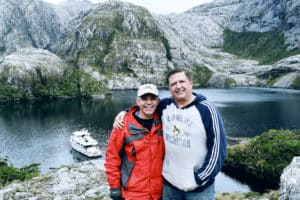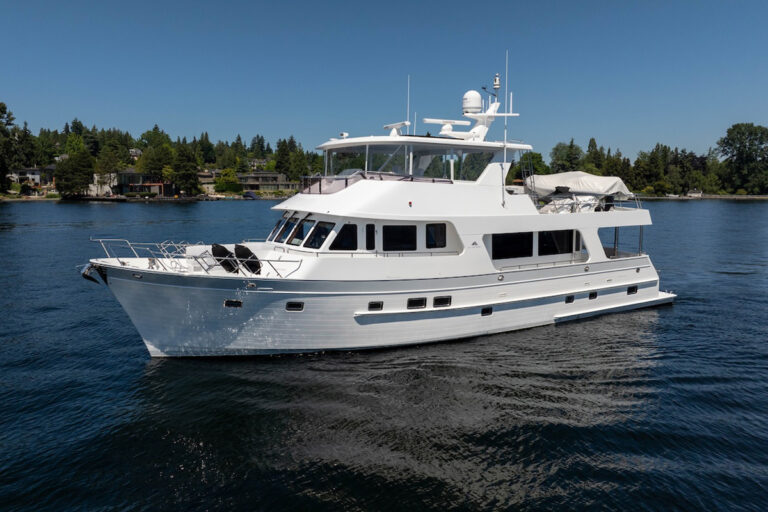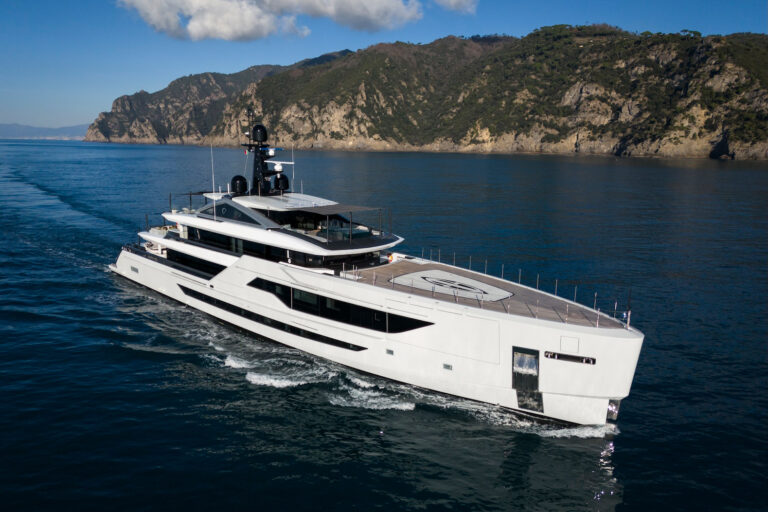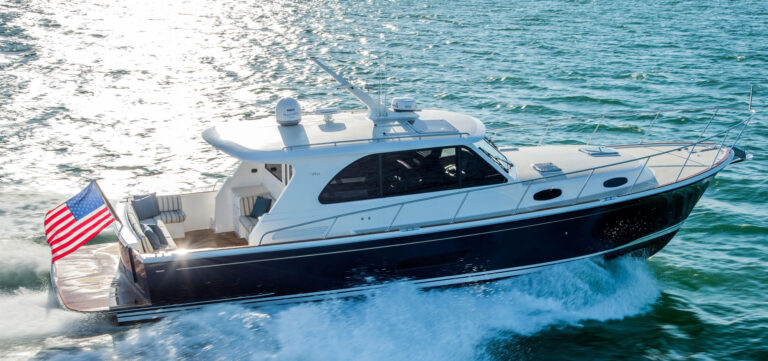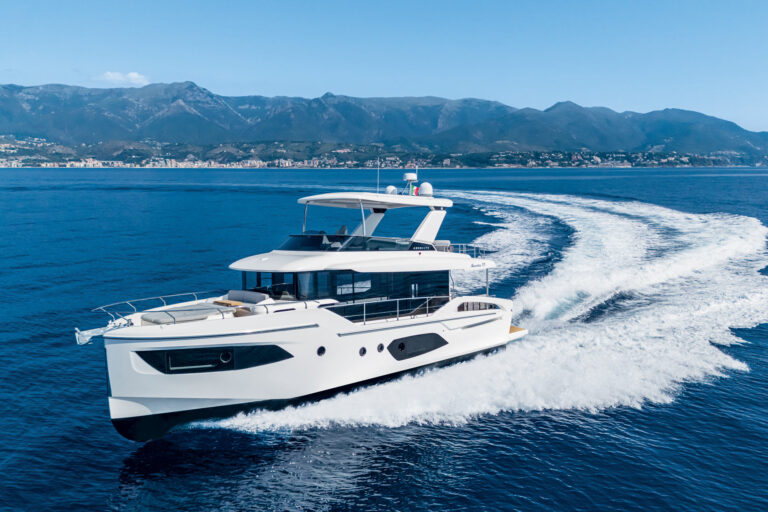We left Bellingham on May 10th with five guests headed to Ketchikan. Other than our one returning passenger, I didn’t know much about who would be on board for this 12-day trip.
They arrived at eight in the morning, and we were underway not too long after. As we cruised across Bellingham Bay, we started to learn more about our passengers and talked about our planned itinerary. When Jeffrey explained about Desolation Sound, Paul, a tallish man with white hair and glasses mentioned that he had a place up there and that we might like to make a stop there for some fresh oysters and clams. Our eyes lit up. It was a no-brainer; we’d definitely stop for fresh seafood. Desolation Sound was still two more days away, so I forgot about the plan until we were cruising across the Straits of Georgia, and Jeffrey and Paul started talking a little more about Paul’s place. At one point I heard Jeffrey say that he had planned to anchor, and Paul replied that he had a dock we could tie to and if it suited us. We could even spend the night there.
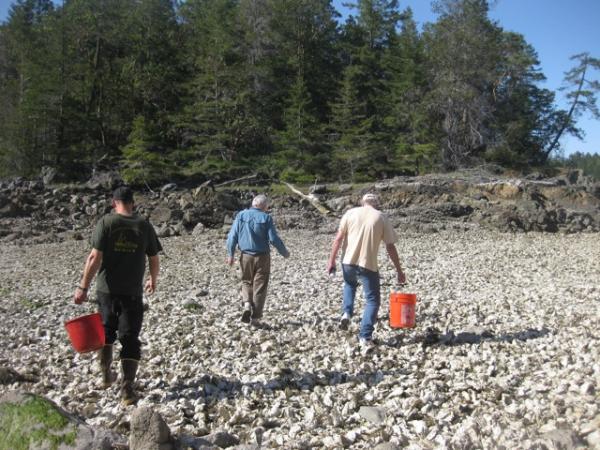
Picking oysters from the beach
When we arrived we found a beautiful old homestead that Paul’s family had purchased 40 years ago. There was a picturesque herb garden complete with apple trees in bloom, and a modest summer cabin Paul’s father had built.
After a quick look around I walked up the dock to join Paul who had gone to an outbuilding for buckets and small hand rakes. He said we should go for the clams first and pointed me in the right direction. I got down to the water’s edge and took out the small sturdy six-inch rake. I kneeled and began scratching the surface. I wasn’t having much luck when Paul called down to say that there were more higher up on the beach. He explained that moon snails were the main predator of clams on his beach. As I raked and ran my hands through the gravel and mud I wondered how many thousands of times this bit of beach had been gleaned by people from Paul’s family and the homesteaders before them, back to the First Nations people who lived here first.
After our buckets were filled we moved down the beach to the oysters. Here we picked ones that had two or three growing together. The singles would be sold to restaurants. We filled more buckets and returned to the David B where I quickly stoked the fire in the cookstove to bake a thick crust bread that I would serve with the clams in a broth of butter, white wine, garlic, celery and carrots. Meanwhile, on the dock, Jeffrey, Paul, Brent and Mark were busy shucking oysters in the warm afternoon sun. They soon asked for a platter. The most beautifully shucked ones were to be eaten raw. I sent out the platter, and when it came back, I placed some lemon wedges around the oysters and grabbed a bottle of Tabasco. A bottle of whiskey was also sent back out on deck to go with the oysters.
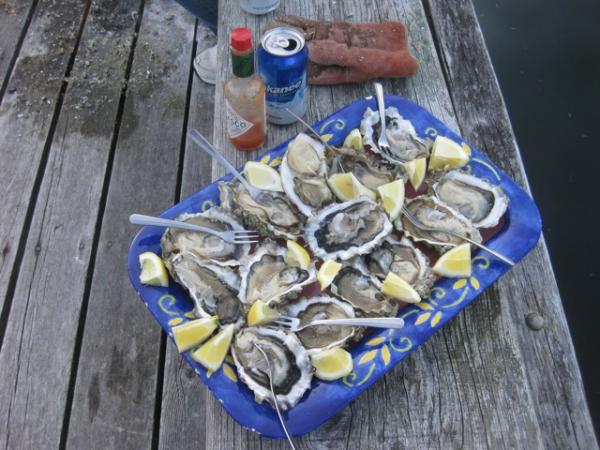
Oysters for dinner
With the bread done baking and the broth for the clams simmering, we gathered on deck around our platter of raw oysters. Those of us who’d eaten them before gave words encouragement and demonstrations to the first timers. Initially they agreed to try just one, but soon, the platter was gone, and the sun was getting low. It was time to move inside for the clam course. I loaded up the stove with more firewood and this time I took the back bullseye off the spot that sits directly over the firebox and placed the pot directly on top of the flames. I checked the level of broth and covered it while I made a salad. When the broth boiled, I passed out the salads and took the mesh bag of clams that had been placed to hang in the water off the dock and poured them into the broth. I silently thanked them for their tasty meat as I lowered the lid.
The salad was simple. I tossed some romaine and spinach in a bowl and whisked some lemon, plain yogurt, garlic, salt and pepper together for the dressing. We rushed through the salad in anticipation of the clams, which I checked a couple of times as I ate.
I served the clams in wide-rimmed bowls with lots of broth. The lingering light of sunset spilled into the galley. The piles of shells in the extra bowls I’d set out had to be emptied several times. Both bottles of white wine were finished, and we all thanked Paul for our detour from the day’s original itinerary.
It’s days like this that I’m reminded how much fun and how important it is to share a meal with others, whether it’s on an old wooden boat in an exotic location like Desolation Sound on the British Columbia coast or at home. The joy of preparing and sharing a meal together is one of the finest pleasures in life.
Visit Northwest Navigation Co.’s website.
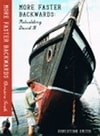
Check out Christine’s book about rebuilding the David B- More Faster Backwards

